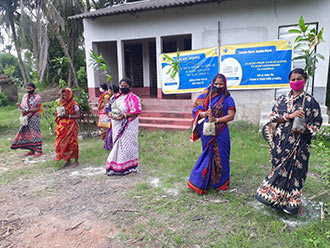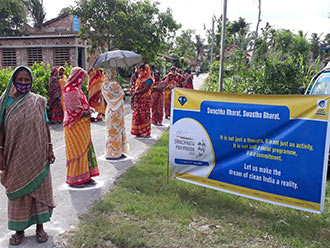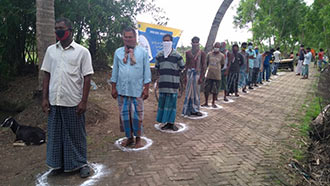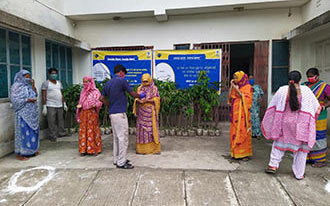
Swachhata Pakwadha Activities
Last few years SSJS organized environment pollution (SSJS own cost) and Swachhata Pakhwada activities by Bharat Petroleum Corporation (BPCL) to school & community for Keeping surrounding clean (school and home). Spread and impact of waterborne diseases and how to avoid them. Using safe drinking water, washing hands with soap before meals and after using toilet. Cutting nails and keeping them clean. We have reached to the beneficiaries more than 12000 people.
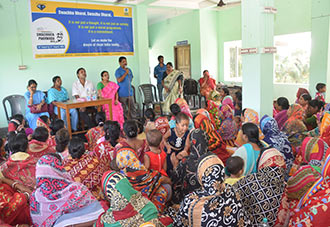
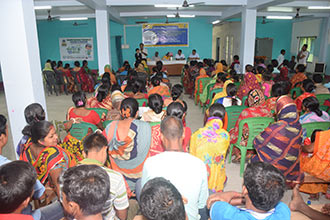
Awareness programs on Swachhta, health and hygiene and Covid-19 will be organized at the Ferry Ghat, Road junction, market place by way of spot quiz, Awareness campaign through miking, display of banners, talk on swachhta, direct approach to boat men, 4 wheelers/2 wheelers/ passerby and community people and poor villagers.
By way of spot quiz, distribution of hygiene kit to fisher men and boat men, distribution of cloth bag to community people, health and hygiene talk through sound system and displaying banner.We have reached to the beneficiaries directly & indirectly more than 85000 people.
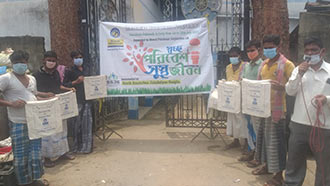
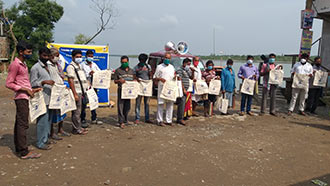
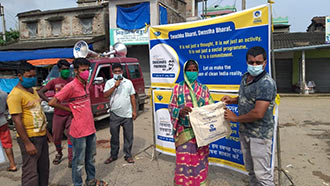
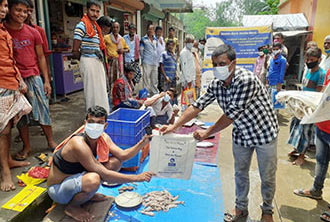
Swachhata Hi Sewa campaign focus on plastic waste management
We have started this awareness programme in various schools situated in South 24 Parganas District in the State of West Bengal by Bharat Petroleum corporation Limited (BPCL) & Oil and Natural Gas Corporation (ONGC)
The focus points for the programme were as to how to avoid the use of plastic, spreading the message across a wide spectrum of society on the harm of littering of plastic to the environment, total avoiding of plastic and to substitute it with cloth and Jute Bags, for public awareness collect plastic waste and demonstrate the alternate use of it, disposing of plastic waste to be free from its harmful effects and to take the oath of Say no to Plastic use cotton Bag. We have reached to the beneficiaries more than 26000 people.
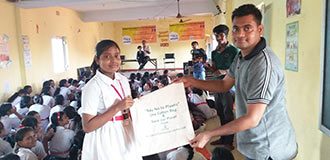
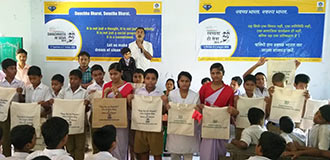
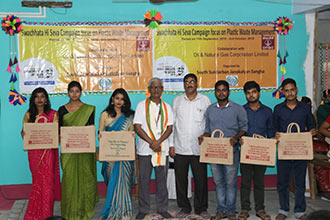
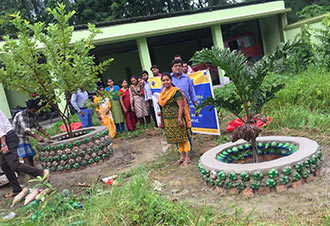
Plantation Programme
Our organisation (SSJS) distributed mango trees for plantation for individual households The beneficiary families will gain in future by way of fruits for consumption and sale of excess fruits bringing them financial benefits. Apart from the above-mentioned benefits, it has a number of social, ecological, environmental and human values attached to it.
